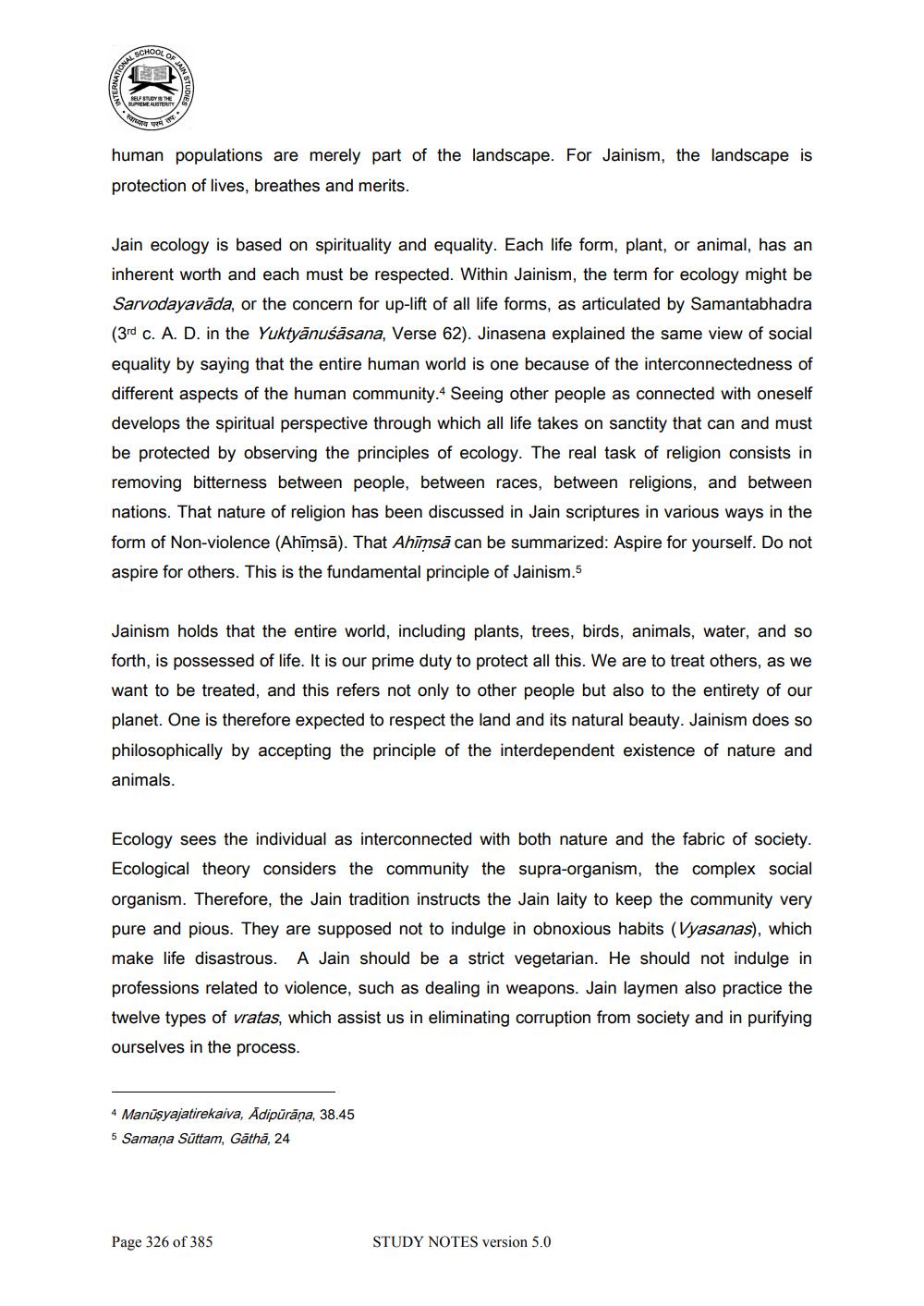________________
human populations are merely part of the landscape. For Jainism, the landscape is protection of lives, breathes and merits.
Jain ecology is based on spirituality and equality. Each life form, plant, or animal, has an inherent worth and each must be respected. Within Jainism, the term for ecology might be Sarvodayavāda, or the concern for up-lift of all life forms, as articulated by Samantabhadra
3rd C. A. D. in the Yuktyānusāsana, Verse 62). Jinasena explained the same view of social equality by saying that the entire human world is one because of the interconnectedness of different aspects of the human community. Seeing other people as connected with oneself develops the spiritual perspective through which all life takes on sanctity that can and must be protected by observing the principles of ecology. The real task of religion consists in removing bitterness between people, between races, between religions, and between nations. That nature of religion has been discussed in Jain scriptures in various ways in the form of Non-violence (Ahimsā). That Ahimsā can be summarized: Aspire for yourself. Do not aspire for others. This is the fundamental principle of Jainism.5
Jainism holds that the entire world, including plants, trees, birds, animals, water, and so forth, is possessed of life. It is our prime duty to protect all this. We are to treat others, as we want to be treated, and this refers not only to other people but also to the entirety of our planet. One is therefore expected to respect the land and its natural beauty. Jainism does so philosophically by accepting the principle of the interdependent existence of nature and animals.
Ecology sees the individual as interconnected with both nature and the fabric of society. Ecological theory considers the community the supra-organism, the complex social organism. Therefore, the Jain tradition instructs the Jain laity to keep the community very pure and pious. They are supposed not to indulge in obnoxious habits (Vyasanas), which make life disastrous. A Jain should be a strict vegetarian. He should not indulge in professions related to violence, such as dealing in weapons. Jain laymen also practice the twelve types of vratas, which assist us in eliminating corruption from society and in purifying ourselves in the process.
4 Manuşyajatirekaiva, Adipūrāņa, 38.45 5 Samana Sūttam, Gatha, 24
Page 326 of 385
STUDY NOTES version 5.0




